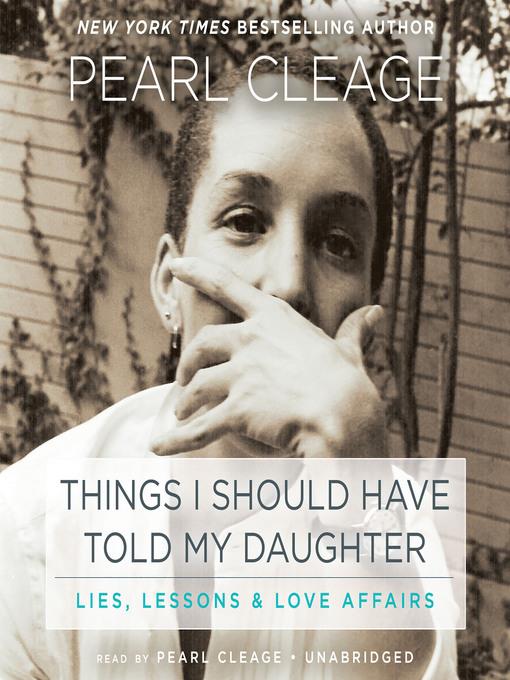
Things I Should Have Told My Daughter
Lies, Lessons & Love Affairs
کتاب های مرتبط
- اطلاعات
- نقد و بررسی
- دیدگاه کاربران
نقد و بررسی

There's an urgency to Pearl Cleage's narration--as if her life depends on every word she shares from her journals of the 1970s and '80s. Speaking rhythmically, passionately, she says exactly what's on her mind and soulfully talks to listeners as if they're good friends. She's colorful with her language and candid in tone when detailing experiences such as her pregnancy, her work with the first black mayor of Atlanta, her mother's battle with cancer, and her desire to be with specific lovers. In the whirlwind of topics, she thematically returns to the idea of being free. Poetically employing repetition, Cleage emphasizes the joys and frustrations of life and of coming into her own womanhood. T.E.C. © AudioFile 2014, Portland, Maine

February 10, 2014
A sampling of playwright and novelist Cleage’s (What Looks Like Crazy on an Ordinary Day) journal entries over 20 years, from 1970 to 1990, as a young journalist, feminist, Civil Rights activist, wife, and mother delineates a long, difficult journey toward self-realization. A student at Spellman College in Atlanta, involved in SNCC meetings and civil rights organizations with her politician husband-to-be. Michael Lomax, Cleage embarked on her journal as race relations were splitting apart the country. Yearning to be a writer, chafing at the constraints of having to ply her way as a journalist, and resentful of the chauvinistic attitudes of men (reading The Feminist Mystique she recognized that, in terms of hiding real issues, “Men have done almost as good a job as white folks”), Cleage tried overall to be true to the ideals she envisioned for herself in her youth. She worked for the election of Maynard Jackson, the first African-American mayor of Atlanta; then got pregnant by the beginning of 1974, prompting many months of fretting about motherhood. Between Maynard’s and her husband’s campaigns, Cleage began to write in earnest in the late 1970s, often working as an itinerant screenwriter, recording her literary findings, and grappling constantly with how to be a sexual being in a committed relationship—thorny questions that led her to leave her marriage and embark on a series of affairs with married men in the 1980s. By turns frank, and wide-eyed, Cleage’s entries reflect a fulsome, tender spirit, hungry for authentic experience, eager for love.

























دیدگاه کاربران